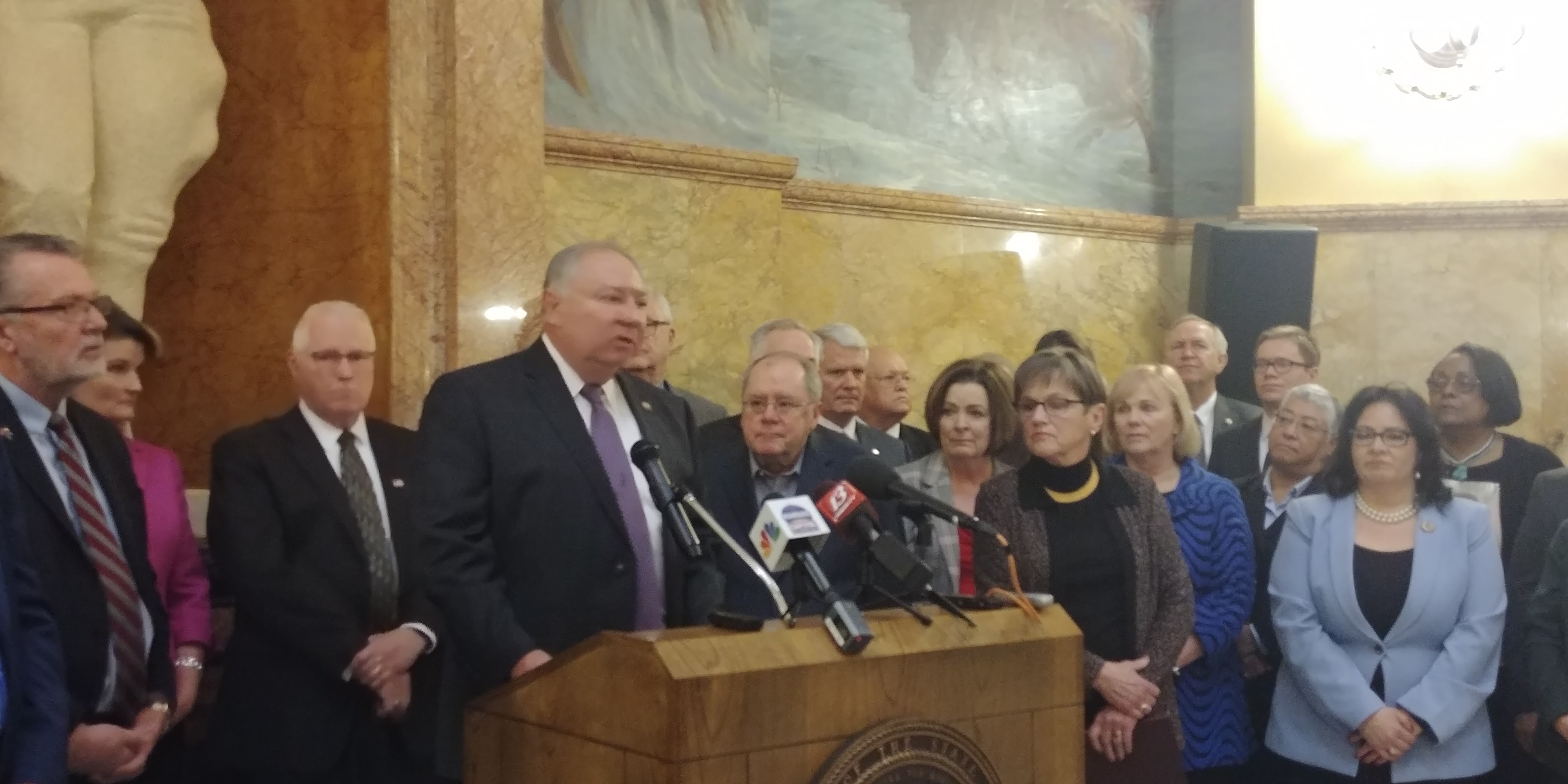Tony Gillette, Shawnee, would like to see a bloodless revolution that returns the power of the federal government back to the people.
“The Founding framers knew that the federal government might one day become drunk with power, so they gave the states a back door gift around the federal leviathan,” Gillette told the Kansas Senate federal and state affairs committee on Valentine’s Day. He advocated for Kansas to join other states in calling for an Article V convention of states. To date, 12 states have passed resolutions calling for a convention, but the U.S. Constitution requires 34 states do so in order for such a convention to occur.

Gillette says a convention is necessary, because the U.S. Congress will never impose limits on its own power. Judicial oversight to curtail the federal government is also unlikely.
“It would take decades for the Supreme Court to reverse enough precedence to eliminate the constitutional loopholes it has created, and that is assuming that the right cases reached it in the right posture, and that we had decades of a solidly, consistently constitutionalist Supreme Court,” Mark Meckler, a California attorney and co-founder of the Convention of States Project, told the committee via written testimony.
The resolution Senate committee forwarded calls a meeting of states to discuss amendments to the U.S. Constitution. It must pass the Senate and House before Kansas can officially join the call for an Article V convention. The resolution before the Senate requests that a convention be called to impose spending restraints on the federal government, limit the jurisdiction and power of the federal government and set term limits for federal officials.
Opponents of the resolution worry Kansas would get a raw deal if the states gathered to craft Constitutional amendments. Blake Branson, Wichita, said Kansas is one of the most conservative states in the nation.
“This is an extremely important point to understand and to consider when discussing the potential for an Article V Convention,” Branson says. “What this means is that nearly every other state delegation at a proposed convention would hold a different world view as they approach the idea of changing our Constitution. Should Kansas be excited about a convention run nearly entirely by states actively practicing governing ideas that Kansans oppose?”
Critics of the resolution also worry a convention of states, once called, could evolve, and participants could stray from the intended topics.
Joshua Shorter, Wichita, says there is no way to control what is brought up on the floor for discussion at a Constitutional convention. A simple majority of delegates would be enough to bring up any topic.
“There is no guarantee that the only topics discussed would be the debt and term limits,” Shorter says. “What happens if a proposal is brought up to remove the Second Amendment? The Fourth? The First?…This is obviously incredibly dangerous.”
Advocates say the tight wording of the resolution limit what convention delegates can consider, however. And any proposed amendments adopted would require ratification by 38 states following the convention. David Schneider, Marion, told the committee in written testimony Congress is granted the power to propose amendments to the Constitution every day it is in session.
“I far more trust you, the state legislators of the several states, to propose further limits on the size, scope, and jurisdiction of the federal government,” Schneider said. “You live in my community, and my children attend schools in your city. I can go to an event and see you and talk to you very easily. This is exactly why the Founders put you in charge to right the ship if it had lost its way.”
Critics of a convention of states agree that Congress’s spending is out of control and that the Courts and presidential Executive Orders are stealing personal liberties. According to Rob Wood, Pittsburg, changing the Constitution won’t fix the nation’s problems, however. He says America’s issues are the result of “ignorance, immorality and apathy, and fixing the hearts and minds of men is the only solution.
“If changing words was all that was needed to stop tyranny, then our Founders would not have written so many notes warning us that the words they left us must be defended and enforced for ourselves and for our posterity,” Wood says.


